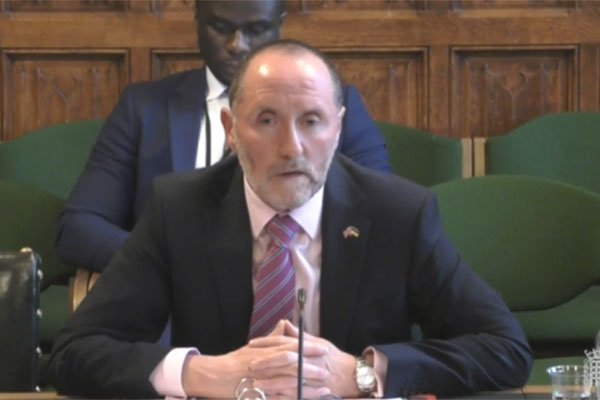Five things we learned from the report on Housing First pilots
The outcomes of the Housing First scheme have been detailed in a report published by the Department of Levelling Up, Housing and Communities. James Riding goes through five key takeaways
Housing First provides immediate housing and open-ended support for rough sleepers. Since 2019, the scheme has been piloted in three locations: Greater Manchester, Liverpool and the West Midlands.
Consultancy ICF surveyed Housing First clients as they entered the scheme, then again six months and 12 months later. A total of 159 participants completed the first two surveys, while 167 clients completed the initial survey and the 12-month follow-up.
The report concludes that outcomes after a year of Housing First are “very encouraging”, with a wide range of “statistically significant improvements” in the social connectedness and well-being of participants.
However, drug and alcohol use remained at similar levels, while most participants were no closer to work than when they entered the scheme.
High levels of tenancy sustainment
A year after entering Housing First, 92% of participants were living in long-term accommodation. The long-term housing is largely social rented accommodation, and clients reported high satisfaction with the autonomy they had. For example, 94% were satisfied with the control they had about who could come round.
However, only 77% were very satisfied with the amount of choice they originally had about their accommodation.
Inside Housing revealed in December that one in six Manchester Housing First participants reported as sustaining a tenancy have moved home.
The figures were revealed after a Freedom of Information request sent to Greater Manchester Combined Authority (GMCA) by Inside Housing found that 38 out of the 238 participants classed as sustaining a tenancy have moved home. This equates to 14.7%, or one in six.
The scheme has run in Greater Manchester since April 2019, with funding from central government and currently holds a 76% tenancy sustainment rate.
GMCA said it considered sustainment of a tenancy to be a tenancy without a period of homelessness or temporary accommodation. It said that people were allowed to move to accommodation that was better suited to their needs and that the first home they moved to does not have to be the last one.
Majority of participants feeling ‘at home’ and listened to
A third of participants (35%) said they were often or always lonely when they entered Housing First, a number which halved to 16% a year later. Meanwhile, the percentage saying they never felt lonely almost doubled over the period from 16% to 27%.
Three-quarters (75%) reported feeling at home where they lived, but only 48% reported interaction with local people. Coming into Housing First, 70% of clients felt they had someone to listen to them, a figure which rose to 81% after a year. This is perhaps linked to the support provided within the scheme.
At 12 months, half (49%) of clients felt safe all the time, with a further fifth (22%) feeling safe most of the time – a substantial improvement on comparative figures before entering the scheme of 11% and 18% respectively.
Before entering Housing First, 70% of clients said they had been a victim of crime in the previous six months. Six months on, 65% said they had not been a victim of crime in the past six months.
However, the report says there was “tentative evidence” that clients were more likely to be victims of crime at the 12-month stage (where 55% said they had not been a victim of crime) than after six months.
Some improvements in well-being, but work to be done on drug and alcohol use
A year into Housing First, many more clients reported eating and sleeping well. A total of 36% said they ate well all the time, compared with 10% a year prior. While 10% said they slept well all the time, compared with 3% the previous year. Conversely, the percentage reporting never eating well fell from 22% to 2%, while the figure for never sleeping well fell from 42% to 25%.
At the start of the scheme, just 4% of clients said their health was very good and 17% said it was good. A year later, these percentages had risen to 7% and 27%. Participants suffering from anxiety fell from 81% to 71% and depression fell from 80% to 68%. The percentage of clients registered with a GP rose from 60% to 92%.
However, a year after entering Housing First, there has been “no statistically significant reduction” in reported drug use or alcohol dependency.
A quarter of clients (27%) said they were dependent on drugs when they entered the scheme, a percentage which was 25% a year later. Seventeen per cent of clients were dependent on alcohol when they entered, a number which stood at 13% a year later.
There was some evidence of a reduction in the usage of particular drugs and the frequency of drinking alcohol. The percentage using crack cocaine in the previous three months fell from from 37% before entering Housing First to 20% after a year.
In addition, half of respondents (51%) had received treatment for drug dependency since entering the scheme, and 17% had done so for alcohol dependency.
Fall in levels of criminal behaviour, but too early to assess impact on employment prospects
In the six months before entering Housing First, a third (34%) of participants reported having been involved in anti-social behaviour, a figure which dropped to 15% at the 12-month follow-up. Likewise, while 29% of clients had been cautioned, arrested or convicted of a crime in the year prior to Housing First, at the 12-month point only 12% had done so in the previous six months.
The report says there was “little evidence” of participants having become closer to the labour market 12 months into Housing First. Only 4% were in paid work and only a further 3% were looking for work or expecting to be in work in the next six months.
The authors note that Housing First “would not predict an impact” on employment at this early stage, given the “severity of disadvantage that clients have typically experienced”. However at the 12-month follow-up, 56% of clients were in receipt of disability benefits, compared with 33% before they entered.
After a year in Housing First, 60% said it was “completely true” that they had the desire to succeed and half (52%) said it was “completely true” that they had life goals.
Split in outcomes for different population sub-groups
Analysis comparing changes in outcomes among different types of clients – split by gender, age, where they were living before the scheme, age they were first homeless, health, mental health, learning disability and substance dependency – show a “relatively consistent pattern of change”.
Women’s accommodation and health outcomes were less likely to improve than men’s. A year after joining, 96% of men were in long-term accommodation compared with 84% of women. While 75% were in good to fair health compared with 53% of women.
Younger people’s health and alcohol dependency outcomes were more likely to improve than older people’s. Those first experiencing homelessness at a younger age had worse outcomes in relation to drug dependency.
Those with mental health conditions had better outcomes in relation to drug dependency than those without, while those with cognitive impairments had worse outcomes in relation to alcohol dependency.
Sign up for our homelessness bulletin
Already have an account? Click here to manage your newsletters
Related stories












